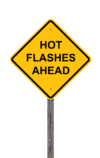What foods to eat and avoid when we hit menopause An inevitable life-changing event for all women is the menopausal stage. Women have different reactions to it. Some dreaded it as it gives them a roller coaster of hormonal imbalance, while some have it easy and are actually thankful that they are already done with… Continue reading What foods to eat and avoid when we hit menopause
Category: Uncategorized
Menopause symptoms are ‘awful, absolutely awful’
Menopause symptoms are ‘awful, absolutely awful’ Media playback is unsupported on your device Media captionJust what does it feel like when you’re going through the menopause? Health professionals need to have a better understanding of the menopause, say women suffering with the condition. One of those women, Amanda Sweetlove, told BBC News NI she had… Continue reading Menopause symptoms are ‘awful, absolutely awful’
Why every woman should have menopause counselling
Why every woman should have menopause counselling Over the last few days I have spoken to women in various states of emotional distress due to their menopause symptoms and the way that they have been treated by their GP’s, employers and even their own partners. This is not unusual, I hear similar stories every day… Continue reading Why every woman should have menopause counselling
Business leaders should ‘speak up’ about the menopause
Business leaders should ‘speak up’ about the menopause Media playback is unsupported on your device Media captionRoseann Kelly Women in senior roles need to “speak up” about working with the menopause. Roseann Kelly, the chief executive of Women in Business NI, said women were “powering on through” but it needed to be addressed at work.… Continue reading Business leaders should ‘speak up’ about the menopause
Women who eat more pasta tend to get menopause earlier
Women who eat more pasta tend to get menopause earlier Cause or correlation? plainpicture/Cavan Images By New Scientist staff and Press Association A study of more than 900 women in the UK has found that eating more white pasta and rice is linked to getting menopause earlier, while a diet rich in oily fish is… Continue reading Women who eat more pasta tend to get menopause earlier
How your diet could influence the age of your menopause
How your diet could influence the age of your menopause Image copyrightGetty Images A diet high in carbs could bring on an earlier menopause, a study suggests. Eating lots of pasta and rice was associated with reaching menopause one-and-a-half years earlier than the average age of women in the UK of 51. However, the University… Continue reading How your diet could influence the age of your menopause
‘For 6 months I would be 23 and go through menopause’: Military spouse’s heartbreaking journey to get pregnant
Military spouse’s heartbreaking journey to get pregnant – Love What Matters “The hardest question to answer is when people ask me, ‘How long have you guys been trying?’ It is not because the question hurts, but because I believe there are so many answers. For me, we started trying the second we found out the… Continue reading ‘For 6 months I would be 23 and go through menopause’: Military spouse’s heartbreaking journey to get pregnant
3 Ways to Treat Menopause Side Effects
3 Ways to Treat Menopause Side Effects Menopause generally occurs for women over 40, but women under 40 can also experience it (which is called early menopause). A woman’s body is going through so many changes during that time and may experience side effects ranging from hot flashes to mood swings. Fortunately, menopause treatments are… Continue reading 3 Ways to Treat Menopause Side Effects
Menopause and Sleep
Menopause and Sleep | HealthStatus Menopause occurs in middle-aged women when their production of estrogen and progesterone slows down. This is usually a gradual process, but can also occur abruptly and severely in women who have have their ovaries removed, which completely stops the production of estrogen and progesterone. Women going through this major physical… Continue reading Menopause and Sleep
9 Top Herbs For Menopause
9 Top Herbs For Menopause When you enter menopause, hormones like estrogen and progesterone decline. Because of the importance of hormones to a woman’s mental and physical health, declining levels of estrogen and progesterone (and other hormones) can result in a number of unwanted side effects, such as: Hot flashes Night sweats Irregular periods (increased… Continue reading 9 Top Herbs For Menopause







